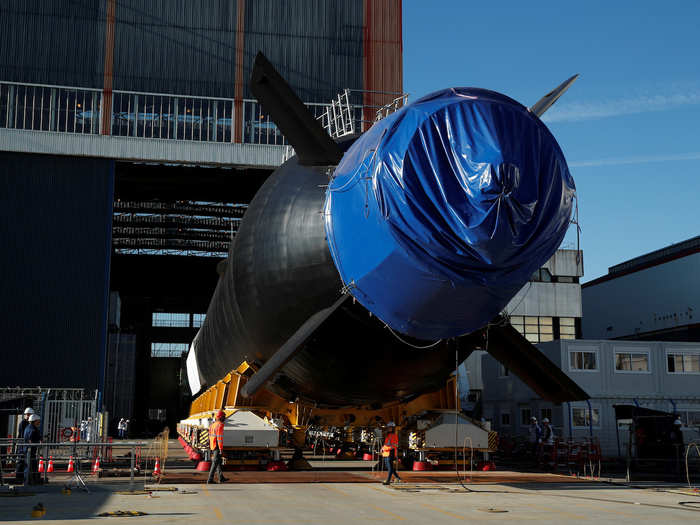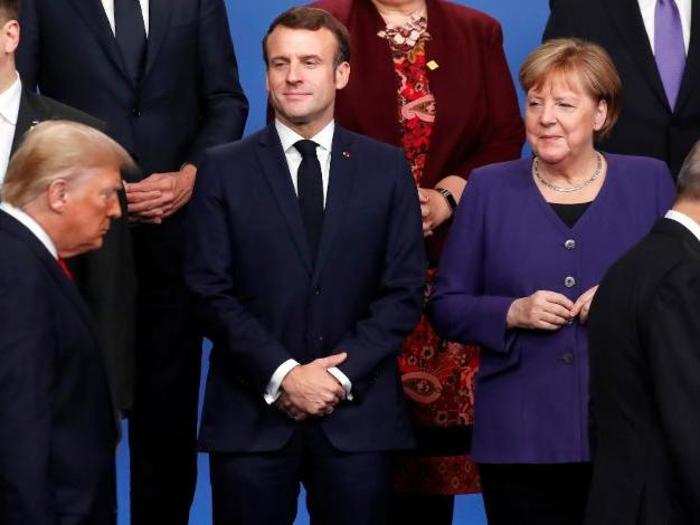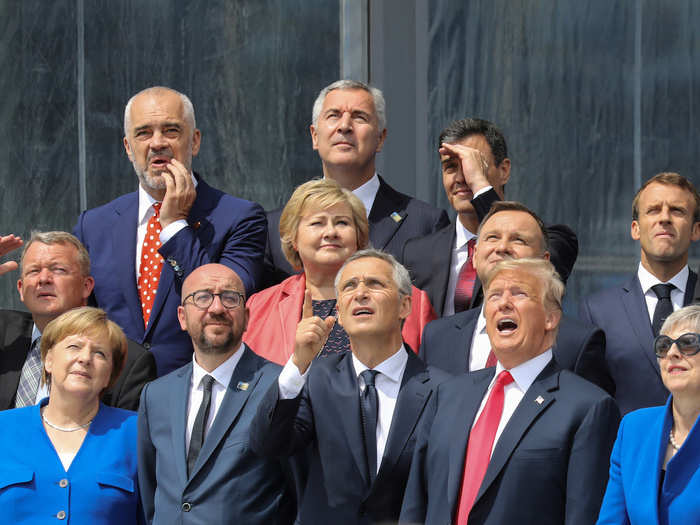- Home
- slideshows
- miscellaneous
- NATO is finally talking about China, and there are 3 big problems it has to address
NATO is finally talking about China, and there are 3 big problems it has to address
1. NATO's mobility in Europe.

2. Supply chains.

The presence of Chinese firms in the supply chains for defense components and other hardware with military applications is a concern in the US, and Europe is not immune.
"Certainly from a supply-chain security perspective [China] poses a challenge" to NATO, Kendall-Taylor said. "I think there's a concern about export controls and all of these other things ... to protect military technologies."
The Pentagon is compiling a list of companies with ties to the Chinese military as part of a Trump administration effort to protect US defense supply chains and to keep Beijing from obtaining sensitive technology.
The review is focused on semiconductors and integrated circuits, as both are vital for weapons like cruise missiles and fighter jets, according to The Financial Times. Export-control rules and federal acquisition regulations could then be used to reduce potential threats from China by banning government agencies from buying technology from companies on the list.
The US's own problems with supply chains may temper its approach to the issue with NATO.
"I haven't seen much ... in the public domain about the US pointing the finger at Europe with regards to supply chain components and defense manufacturing, especially the higher-end stuff like aerospace," Barndollar said. "We're really bad about that, whether you're looking at rare earth metals, looking at aviation components, even naval stuff. We've got to fix our own house before we can point any fingers at the Europeans."
5G networks, and the role of Chinese firm Huawei in them, has been a major point of contention.

Huawei is thought to be ahead of other companies in supplying 5G technology and to be able to do it more cheaply.
"From a NATO perspective [5G technology] poses challenges for espionage reasons, and so NATO has a real interest in ensuring that they have a clean network of communications and that China then wouldn't at some point have an ability to disrupt NATO communications," Kendall-Taylor said, adding that the European Union has made progress on the issue.
A EU report issued in October, which did not directly name Huawei, warned that a "strong link" between a 5G supplier and a government "where there are no legislative or democratic checks and balances in place" could expose a country using that technology to espionage or cyberattacks.
Different countries have different views on Huawei and on 5G, and the company's ultimate role in European 5G networks is still being debated.
"I think this isn't an issue that NATO has the tools itself to tackle," Kendall-Taylor said. "It has interests ... but it will need the EU and the European Commission in particular to actually implement" the European response.
But Huawei's involvement "is definitely going to be a deal breaker with a lot of the intelligence relations, but especially signals intelligence sharing," Barndollar said. "It's also going to make it a lot harder for the US to collect and provide as much to a lot these countries. So that has a huge impact down the line."
3. The political cohesion that undergirds NATO itself.

NATO Secretary General Jens Stoltenberg on Tuesday acknowledged the "opportunities and challenges" posed by China's growing global role.
"We have now of course recognized that the rise of China has security implications for all allies," he added.
Beijing's actions abroad add to the challenge of maintaining a united front, and, like Russia, China would welcome internal political tensions that undermine NATO unity.
"All of the things that China is doing through the Belt and Road and the 17+1 add another element of strain to the political cohesion and consensus inside Europe," Kendall-Taylor said.
"The tricky thing with the China question in the European context is there are just such widely divergent views about the nature of the challenge that China poses," Kendall-Taylor added. "Different countries I think have very different perspectives of the challenges that China poses, so I think it is a success that China that is on the agenda for the first time."
The alliance will have to work together to define and articulate its interests in order to defend them, and even then, addressing all aspects of that challenge may be beyond NATO's purview.
"How much of this is a NATO problem or a NATO challenge and how much of this needs to be dealt with more in an EU framework?" Kendall-Taylor said. "When you're thinking about things like infrastructure investments, export controls, investment screening, a lot of those things happens in the EU and at the member-state level."
Popular Right Now
Popular Keywords
Advertisement